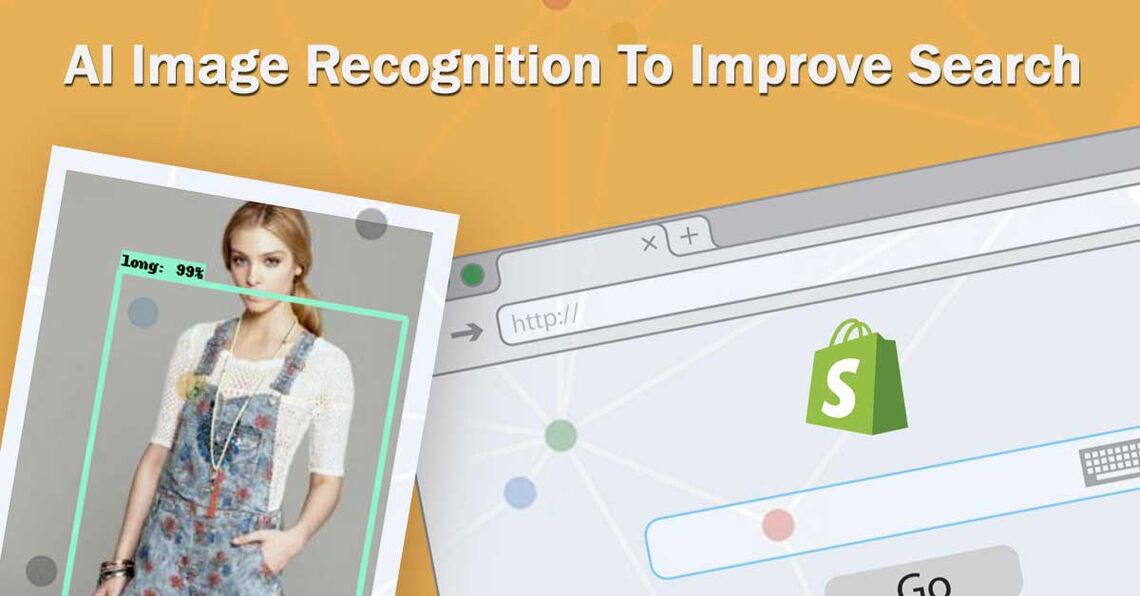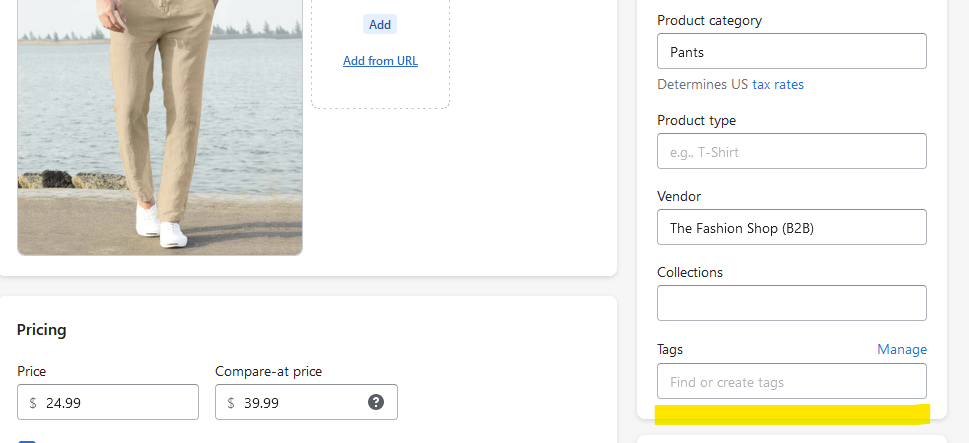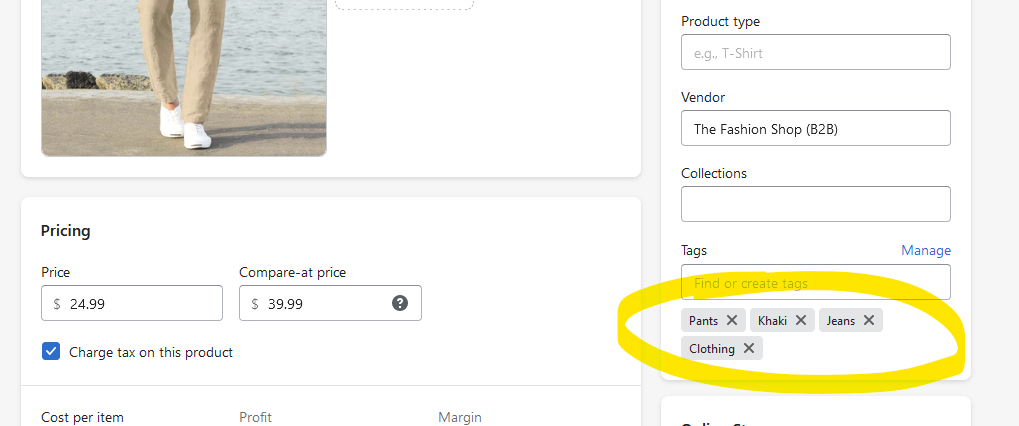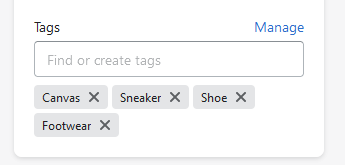Blog
Using AI Image Recognition to Improve Shopify Product Search
Search is an important part of any ecommerce site. Can we use the power of AI to improve results and increase sales? Heck yeah!

Search is an important part of any ecommerce site. Can we use the power of AI to improve results and increase sales? Heck yeah!


March 27th, 2023
Search is an important part of any ecommerce site. Can we use the power of AI to improve results and increase sales? Heck yeah!
One of the best ways to improve your ecommerce sales is to improve your search results. Having relevant results in your store leads to happy customers. When you have happy customers, you get more sales. How can you ensure customer visits turn into conversions? You need to help them find what they want as quickly and accurately as possible. If your search results provide irrelevant or empty findings, then people will lose confidence and leave your site.
The key to good results is having properly organized and labeled sources. On Shopify, you can take advantage of product tags to add relevant keywords to your items. Tags can be added manually to any product in your store. Manually tagging items however can be time-consuming, especially if you have a lot of products. We want a way to automatically generate accurate, relevant tags for our products. This is a perfect task for artificial intelligence (AI) and image recognition. Let's demonstrate how this concept works and see if we can improve the search on our Shopify Fashion Shop store. We have a great AI YouTube video showing the process:

One amazing use of AI is the deep learning ability to accurately analyze images. AI image recognition works by using algorithms to identify patterns in images. The algorithms are pre-trained on huge datasets of images. This process teaches the AI how to recognize objects. The analysis can then generate text by identifying the objects, places, landscapes, and activities within the picture. The AI assigns an accuracy percentage for each text result and reports the analysis. The higher the accuracy, the more confidence the AI has in the detection. Today's AI systems have been trained on billions of images with the ability to provide 100% detection accuracy. With that level of confidence, we can use this technology to create a word map that describes any image in our store.

Let's apply this image recognition power to the products in our Shopify store. With this technology, we can convert the results into relevant product tags. We can use this AI system to quickly tag all the products within our store thus improving the keywords for each item. That is a huge time saver and a game-changer for metadata accuracy. Let's put this image recognition idea to the test in our demo fashion store.

We'll start with this pair of pants in our Shopify store. The product doesn't currently have any associated tags therefore, there aren't any extra keywords to help customers find the item. But what if we used some AI wizardry to analyze the image and generate a word map of the results? We could then use those results as keywords to help with the search. And that is exactly what we did using the new Sunrise Integration digital ecommerce engine.
We ran the above picture into our deep-learning AI image recognition tool and it generated the following JSON results. The analysis created name values and assigned a confidence score for each generated word:
[{ "Name": "Clothing", "Confidence": 100 }, { "Name": "Pants", "Confidence": 100 }, { "Name": "Khaki", "Confidence": 93.92 }, { "Name": "Jeans", "Confidence": 56.43 }]
Our digital ecommerce engine then lets us choose an accuracy threshold for our confidence tolerance. The lower the confidence, the less accurate the words become. For this example, we chose to keep all words with a score of 50% or more. The values with a passing score are then assembled into an array and imported back into the product using the Shopify API connection. The product now features the accepted words as tags on the item.

The AI engine was able to automatically analyze the image, generate relevant keywords and update the product tags on Shopify. This improves the ability for customers to find matches by utilizing these tags during search queries. The more relevant tags you can add to your product, the better chance customers will find it as they search for items. The tags also help with the creation of smart-collections, making it easier to provide related items to the customer. You can see why tags are so important to search. Now we can repeat the process with other items.

This time let's try one of the shoe images in our fashion store. We'll repeat the recognition process with our AI engine. The system does its magic on the picture and generates the following JSON result:
[ { "Name": "Footwear", "Confidence": 100 }, { "Name": "Shoe", "Confidence": 100 }, { "Name": "Sneaker", "Confidence": 99.99 }, { "Name": "Canvas", "Confidence": 99.98 } ]
The text algorithm extracts the name values and imports them into our Shopify store as tags for the product.

We can repeat the same process for any product in our store. The tags can be used for lots of useful purposes in Shopify with the biggest benefit being a boost to your search results.

As we've shown, we can use the power of our AI engine to automatically add relevant keywords to products. These highly accurate keywords improve product discoverability within our store. If we look back at the pants above, the image detection engine determined they were khaki-colored. The system generated the text and created a tag for Shopify. Our search now matches the pants with the khaki color. This process created highly accurate and relevant keywords that Shopify uses for search.
We've improved the accuracy of our search results thus building customer confidence in our merchandise. With more relevant results, customers will spend more time on our site which leads to more potential sales opportunities. All thanks to some handy AI magic and image recognition.
We're bringing our 23 years of digital commerce experience to tackle the unique needs of ecommerce merchants. The result is our new AI-powered ecommerce engine that provides solutions for day-to-day digital commerce tasks. The system incorporates proprietary machine learning (ML) algorithms and artificial intelligence (AI) content with the power of ChatGPT to solve common ecommerce issues. Here are some of the issues our digital commerce engine can solve:
Generate product descriptions
Write blog posts
Image recognition and content moderation
Text/tag extraction from images
Next Store Action recommendations
Competitive price analysis
Sales analysis recommendations
And more!
We're just getting started with the power of our digital ecommerce engine. If you want to learn more or get a pre-release on your store, contact us today!